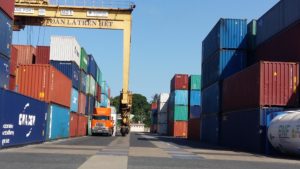Local investors have shifted their assets to more conservative ones due to higher volatility in interest rates as well as rising threats to the growth of the global economy, according to a group composed of the heads of government financial agencies.
The Financial Stability Coordination Council (FSCC) also said it examined various proposals to “strengthen long-term finance, enhance valuation practices for market instruments, as well as broadening its communication initiatives” to sustain the growth of the Philippine economy and support the government’s infrastructure development initiatives.
Its executive committee is composed of the principals and the most senior officers from the Bangko Sentral ng Pilipinas, the Department of Finance, the Bureau of the Treasury, the Insurance Commission, the Philippine Deposit Insurance Corporation and the Securities and Exchange Commission.
“Financial markets are extraordinarily volatile this year and the FSCC continues to assess the possible impact to the Philippines of changing macro-financial conditions,” FSCC chair and BSP Governor Nestor Espenilla Jr. said.
The FSCC issued this statement after its quarterly meeting on Tuesday to assess potential risks to the stability of the local financial system.
Espenilla said the challenge facing policymakers “is to intervene early enough” so that systemic risks do not build up “but not too early that they derail [the country’s] growth momentum.”
“We continue to be cognizant of this delicate balance, nurturing innovations and ideas while providing appropriate prudential oversight,” he said.
The central bank chief’s statement stressing balance comes amid persistent criticism that monetary authorities took their time before acting more forcefully against incipient inflationary threats at the start of the year. This resulted in the ongoing surge of consumer prices that has brought the inflation rate of 5.7 percent in July to its highest level in at least five years.
Along with the inflation rate, local interest rates have also been on the uptrend while the peso has lost ground against the US dollar since the start of the year due, in part, to rising interest rates in developed nations, which has attracted mobile capital back overseas.
The FSCC communique noted that different jurisdictions have different definitions for financial stability, but all of them share the common feature that a well-functioning financial system is essential to financial stability.
“The focus of the FSCC is consistent with this broad view as it considers various cross-cutting issues that may impact on the Philippines financial market,” the group said.


